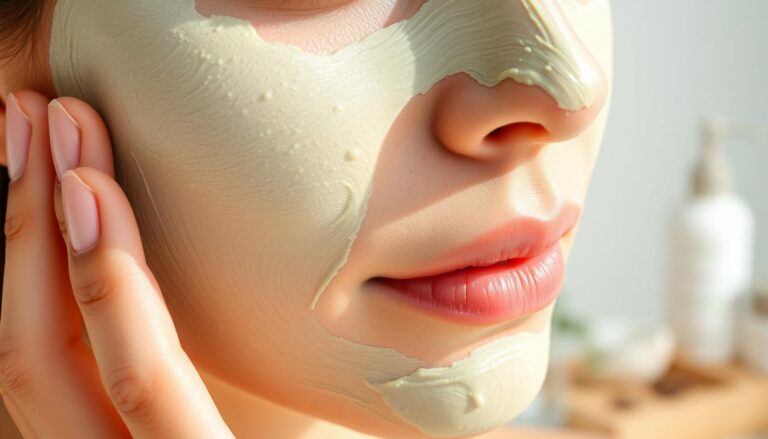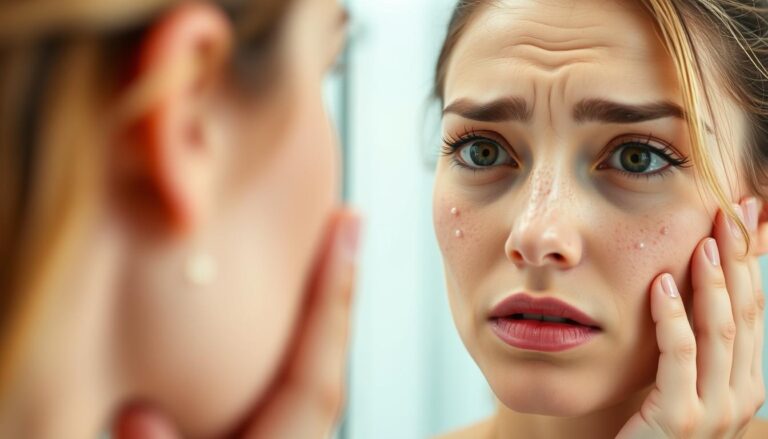At Glowskinhub.com, we believe beauty isn’t just a look—it’s a feeling
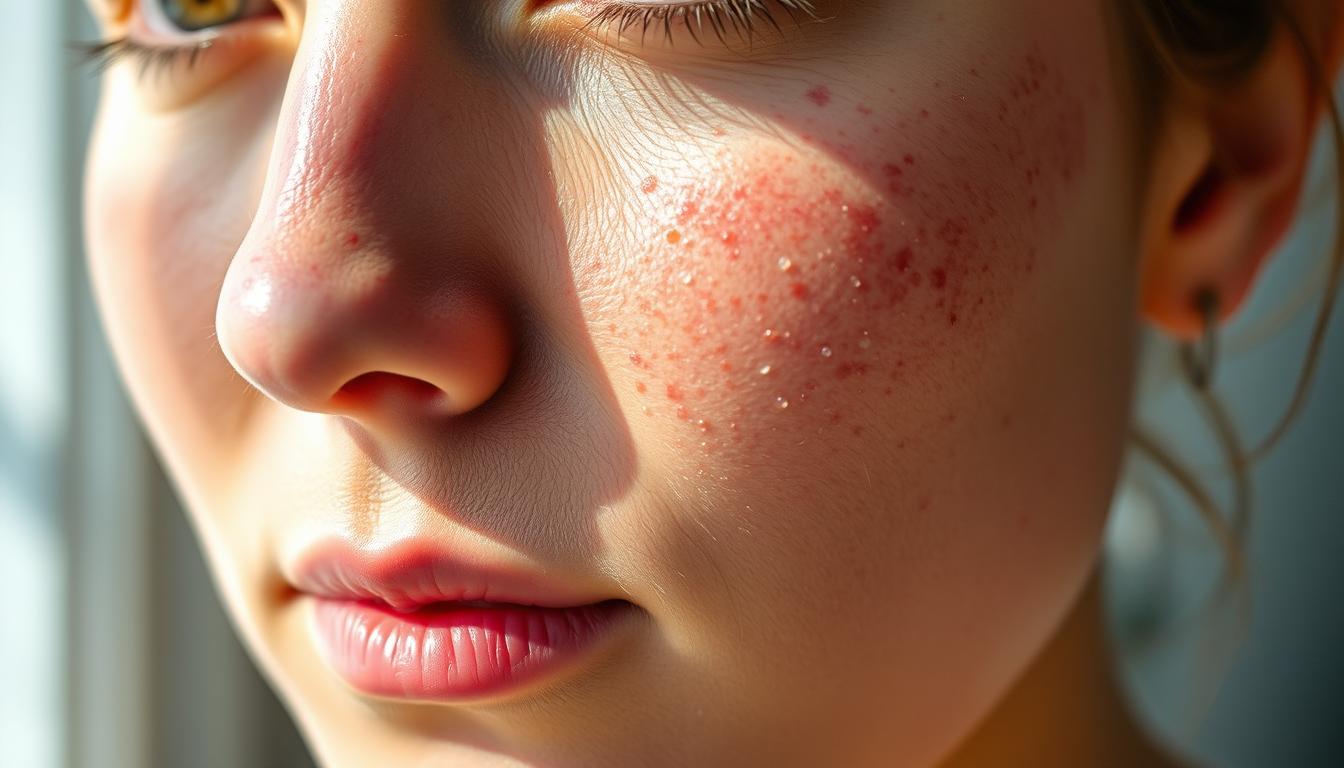
How to treat acne scars at home naturally
Acne scars can be a bothersome reminder of past Skin issues, affecting one’s self-esteem and confidence. Fortunately, natural remedies for acne scars offer a promising solution without the harsh chemicals found in some commercial treatments.
Various home remedies for acne scars have been passed down through generations, with some proving effective in reducing the appearance of scars. These methods focus on acne scar treatment using readily available ingredients that nourish and rejuvenate the Skin.
By exploring these natural approaches, individuals can find a suitable acne scar treatment that works for their Skin type, helping them achieve a smoother complexion.
Key Takeaways
- Natural remedies can effectively reduce acne scars.
- Home remedies utilise easily accessible ingredients.
- Acne scar treatments vary, allowing for personalised solutions.
- Nourishing the Skin is crucial for scar reduction.
- Simple, non-invasive methods can be highly effective.
Understanding Acne Scars and Their Types
Acne scars can be a lasting reminder of acne, but understanding their causes and types is the first step towards effective treatment. Acne scarring occurs when the Skin’s natural healing process following an acne lesion leads to changes in the Skin’s texture.
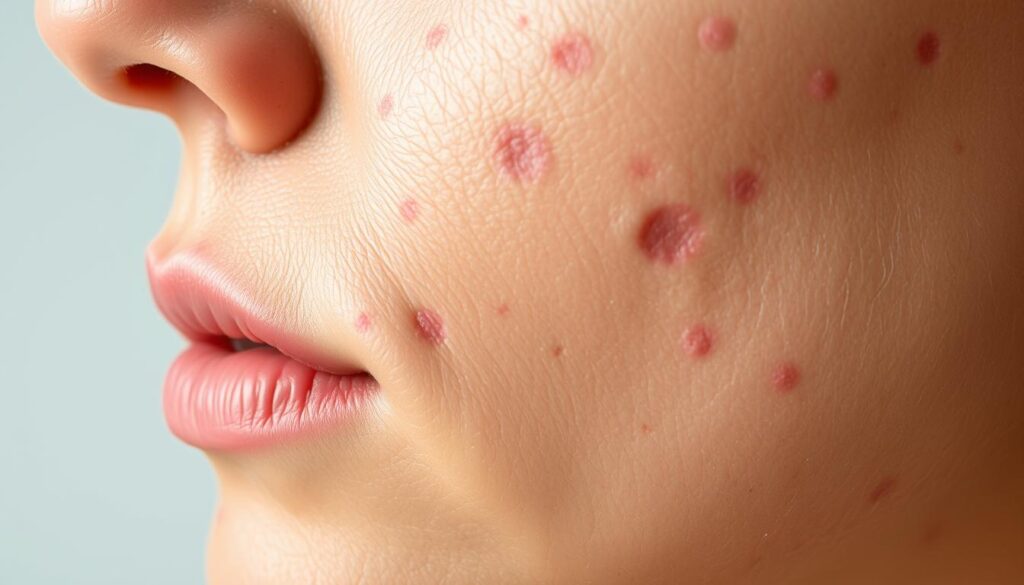
What Causes Acne Scarring?
Acne scarring is primarily caused by inflammation resulting from acne. When a pimple or acne lesion becomes inflamed, it can cause damage to the Skin, leading to scarring. The severity of the inflammation often determines the likelihood and severity of scarring.
Different Types of Acne Scars
There are mainly two types of acne scars: atrophic and hypertrophic scars. Atrophic scars are characterized by a loss of Skin tissue, resulting in depressions or pits in the Skin. Hypertrophic scars, on the other hand, are raised scars that occur due to excessive collagen deposition during the healing process.
How Skin Heals After Acne
The Skin’s healing process after acne involves several stages, including inflammation, proliferation, and remodeling. Understanding this process is crucial as it can help in determining the best approach for treating acne scars. Proper skincare and treatments can aid in improving the appearance of scars by enhancing the Skin’s natural healing process.
How to Treat Acne Scars at Home Naturally
With the right approach, it’s possible to effectively treat acne scars at home using natural methods. Natural treatments can offer a gentle yet effective way to improve the appearance of acne scars.
Benefits of Natural Treatments
Natural treatments for acne scars have several benefits. They are typically free from harsh chemicals, making them suitable for sensitive Skin. Moreover, natural treatments can be cost-effective and easily incorporated into daily skincare routines.
- Reduced risk of adverse reactions
- Cost-effective solutions
- Easy integration into daily routines
Setting Realistic Expectations
It’s crucial to set realistic expectations when treating acne scars naturally. Natural treatments may take longer to show results compared to chemical-based treatments or professional interventions.
Understanding that natural treatments are a gradual process helps in maintaining patience and consistency, which are key to achieving desired outcomes.
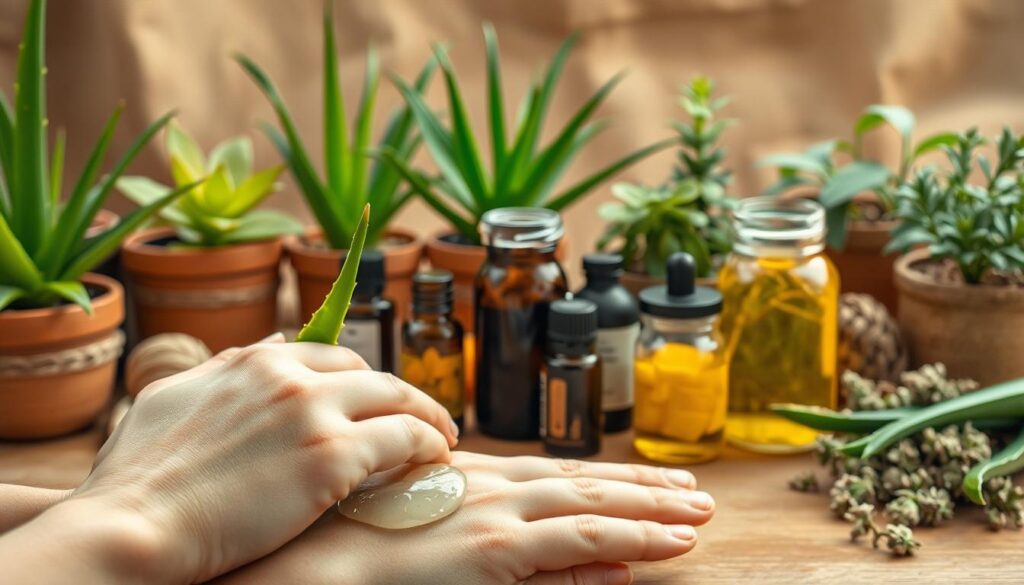
Patch Testing for Safety
Before starting any new treatment, patch testing is essential to ensure you don’t have any adverse reactions to the ingredients used.
This simple step can prevent widespread Skin irritation and ensure the treatment’s effectiveness.
Creating a Treatment Plan
Developing a treatment plan tailored to your Skin type and acne scar characteristics is vital. This involves selecting the most appropriate natural treatments and consistently applying them as directed.
A well-thought-out treatment plan can significantly enhance the effectiveness of natural acne scar treatments.
Powerful Natural Ingredients for Scar Healing
Nature offers a plethora of ingredients that can help heal acne scars. These natural remedies have been used for centuries and are known for their effectiveness in scar reduction.
Aloe Vera for Scar Reduction
Aloe vera is renowned for its soothing properties and is often used to treat Skin conditions, including acne scars. Its gel contains vitamins A, C, and E, which help in Skin regeneration and reduce inflammation. Applying aloe vera gel directly to the scarred area can significantly improve Skin texture.
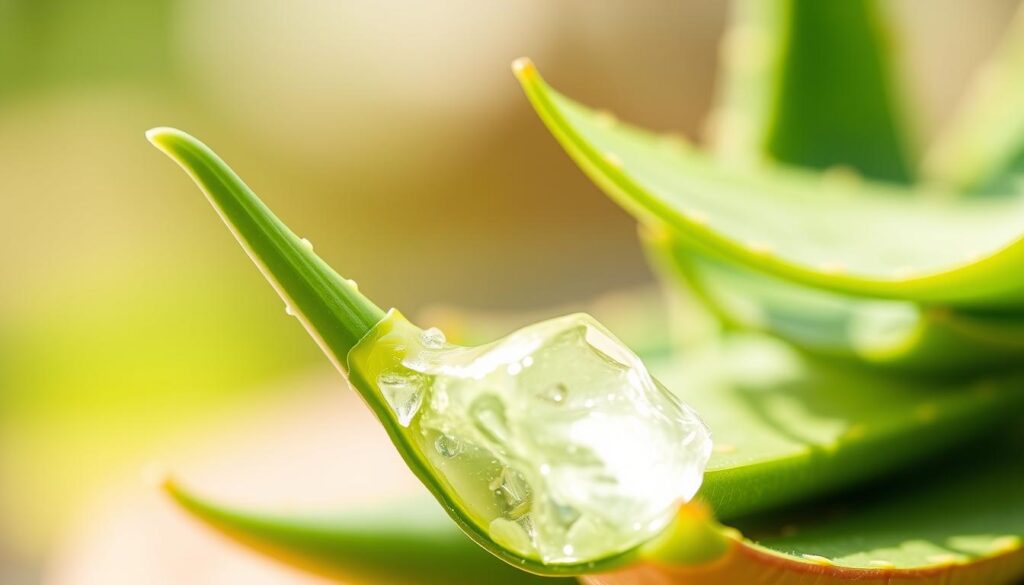
Honey and Its Healing Properties
Honey is another natural ingredient that is beneficial for acne scar treatment. It has antibacterial properties that prevent infection and promote healing. Manuka honey, in particular, is known for its high antibacterial activity.
Essential Oils for Acne Scars
Essential oils can be highly effective in treating acne scars due to their various healing properties.
Tea Tree Oil
Tea tree oil has antimicrobial properties that help prevent further breakouts and promote healing of the scars.
Lavender Oil
Lavender oil is known for its calming properties and can help reduce redness associated with acne scars.
Rosehip Oil
Rosehip oil is rich in antioxidants and essential fatty acids that help regenerate Skin cells, thus reducing the appearance of scars.
Vitamin E and Scar Tissue
Vitamin E is known for its role in promoting Skin healing. It helps in repairing damaged Skin and reducing the appearance of scars. Using vitamin E oil or creams rich in vitamin E can be beneficial for scar treatment.
| Ingredient | Benefits | Application |
|---|---|---|
| Aloe Vera | Soothes and regenerates Skin | Apply gel directly to scars |
| Honey | Antibacterial, promotes healing | Apply Manuka honey to affected areas |
| Essential Oils | Antimicrobial, anti-inflammatory | Dilute with carrier oil and apply |
| Vitamin E | Promotes Skin healing | Use vitamin E oil or creams |
DIY Face Masks for Acne Scar Treatment
DIY face masks can be a highly effective way to treat acne scars naturally. By utilizing simple, natural ingredients, you can create masks that not only help reduce the appearance of acne scars but also nourish and rejuvenate your Skin.
Turmeric and Yoghurt Mask
The turmeric and yoghurt mask is a popular remedy for acne scars. Turmeric contains curcumin, which has potent anti-inflammatory and antioxidant properties. Mixing turmeric with yoghurt creates a soothing mask that can help reduce inflammation and promote healing. To make this mask, mix 1 teaspoon of turmeric powder with 2 tablespoons of yoghurt and apply it to your face for 15-20 minutes.
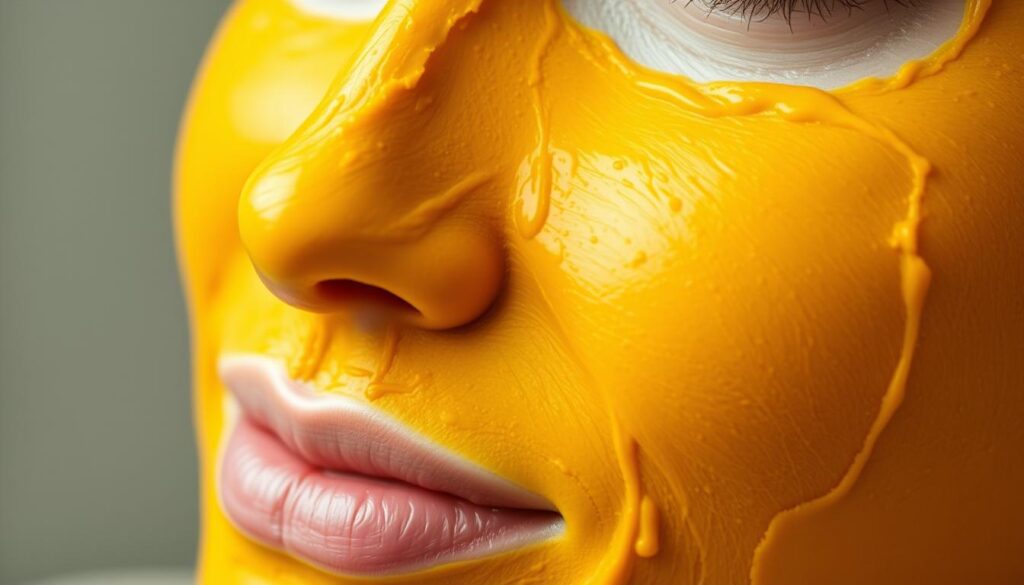
Lemon and Honey Brightening Treatment
Lemon and honey are both known for their brightening and antibacterial properties, making them an excellent combination for a face mask. The citric acid in lemon helps to gently exfoliate the Skin, while honey provides hydration and promotes Skin elasticity. Mix equal parts lemon juice and honey, apply to your face, and leave it on for 10-15 minutes before rinsing.
Aloe Vera and Tea Tree Oil Mask
Aloe vera is renowned for its soothing properties, and when combined with tea tree oil, it creates a powerful mask for acne scar treatment. Tea tree oil has antibacterial properties that help prevent further breakouts, while aloe vera calms and heals the Skin. Mix a few drops of tea tree oil with aloe vera gel and apply it to your face for 15-20 minutes.
Green Tea and Cucumber Soothing Mask
Green tea and cucumber are both known for their anti-inflammatory properties, making them ideal for soothing irritated Skin and reducing the appearance of acne scars. Green tea is rich in antioxidants, while cucumber helps to cool and hydrate the Skin. Steep green tea, cool it, and then mix it with grated cucumber to create a refreshing mask.
Natural Exfoliation Methods for Scar Reduction
Natural exfoliation is a key component in the quest to minimise the visibility of acne scars. By removing dead Skin cells and promoting cell turnover, exfoliation helps to reveal smoother, brighter Skin.
Sugar and Honey Scrub
A sugar and honey scrub is a gentle yet effective exfoliating treatment. Sugar acts as a natural abrasive, removing dead Skin cells, while honey provides moisturising and antibacterial benefits. To make this scrub, mix 2 tablespoons of sugar with 1 tablespoon of honey and gently massage onto the Skin in circular motions before rinsing with warm water.
Oatmeal Exfoliation
Oatmeal is another natural ingredient that can be used for gentle exfoliation. It soothes the Skin while removing dead Skin cells, making it suitable for sensitive Skin. You can use finely ground oatmeal as a scrub or add it to your bath water for a relaxing soak.
Fruit Enzyme Treatments
Fruit enzymes, such as those found in papaya and pineapple, help break down dead Skin cells and promote Skin renewal. These enzymes can be used in the form of masks or peels, offering a gentle and effective way to exfoliate the Skin.
Gentle Exfoliation Techniques
When exfoliating, it’s crucial to be gentle, especially if you have sensitive Skin or active acne. Use light, circular motions and avoid scrubbing too hard, as this can irritate the Skin and worsen scarring. Exfoliate 1-2 times a week for best results.
| Exfoliation Method | Key Ingredients | Benefits |
|---|---|---|
| Sugar and Honey Scrub | Sugar, Honey | Exfoliates and moisturises |
| Oatmeal Exfoliation | Oatmeal | Soothes and gently exfoliates |
| Fruit Enzyme Treatments | Papaya, Pineapple | Breaks down dead Skin cells |
As Dr. Jane Smith, a dermatologist, notes, “Exfoliation is a vital step in managing acne scars. By choosing the right natural exfoliants, individuals can improve Skin texture and reduce the appearance of scars.”
Hydration and Nutrition for Skin Healing
The journey to healthier Skin and reduced acne scarring involves not just topical treatments but also a focus on internal health through hydration and nutrition. A well-nourished body is better equipped to heal and regenerate Skin tissue.
Foods That Promote Skin Repair
Certain foods are particularly beneficial for Skin health due to their high content of vitamins, minerals, and antioxidants. Leafy greens like spinach and kale are rich in vitamins A, C, and E, which are crucial for Skin repair. Berries are another excellent choice, packed with antioxidants that help protect the Skin from damage.
The Importance of Water for Skin Health
Adequate hydration is essential for maintaining Skin elasticity and facilitating the healing process. Water helps to flush out toxins from the body, which can otherwise lead to Skin issues. Drinking enough water is a simple yet effective way to support Skin health.
Supplements That Support Scar Healing
In addition to a balanced diet, certain supplements can support Skin healing. Vitamin C is known for its role in collagen production, while zinc supports wound healing. It’s essential to consult with a healthcare professional before adding any supplements to your regimen.
British Superfoods for Skin Health
The UK is home to a variety of superfoods that can benefit Skin health. Elderberries, rich in antioxidants, and goji berries, high in vitamins and minerals, are excellent choices. Incorporating these foods into your diet can provide the necessary nutrients for optimal Skin health.
Best Skincare Routine for Oily Skin with Acne Scars
For those with oily Skin and acne scars, a well-structured skincare routine is crucial for achieving healthier Skin. Managing oily Skin while treating acne scars requires a balanced approach that controls oil production without over-drying the Skin.
Morning Routine for Oily Skin
Starting your day with the right skincare routine can make a significant difference. Begin with a gentle cleanser that effectively removes dirt and excess oil without stripping the Skin of its natural moisture. Look for a cleanser containing salicylic acid or glycolic acid, which help in gently exfoliating the Skin and unclogging pores.
Next, apply a lightweight, oil-free toner to help balance your Skin’s pH and tighten pores. Follow this with a Serum rich in vitamin C or niacinamide, which can help brighten the Skin and reduce the appearance of acne scars. Finish your morning routine with a broad-spectrum sunscreen with at least SPF 30 that is labeled “non-comedogenic” or “oil-free” to prevent clogged pores.
Evening Routine for Acne Scar Treatment
In the evening, start by double cleansing your Skin: first with a gentle oil-based cleanser to remove makeup and sunscreen, followed by a water-based cleanser to deep clean the pores. Use a product containing retinoids or a chemical exfoliant like alpha-hydroxy acids (AHAs) or beta-hydroxy acids (BHAs) to promote cell turnover and help reduce acne scars.
Apply a treatment product that targets acne scars, such as a product with silicone or a scar-reducing Serum. Finally, moisturize with a lightweight, non-comedogenic moisturizer to keep your Skin hydrated without clogging pores.
Weekly Treatments to Incorporate
Exfoliation is key to removing dead Skin cells and promoting Skin renewal. Use a chemical exfoliant or a gentle physical exfoliant 1-2 times a week. Additionally, consider incorporating a face mask that targets acne scars and oil control, such as a clay mask or a mask with tea tree oil.
- Use a clay mask to absorb excess oil and purify the Skin.
- Apply a mask with soothing ingredients like aloe vera or green tea to calm the Skin.
Oily Skin Moisturisers That Won’t Clog Pores
Even oily Skin needs moisturizing to stay healthy. Look for moisturisers labeled “non-comedogenic” or “oil-free.” Gel-based moisturisers or those containing hyaluronic acid are excellent options as they provide hydration without clogging pores.
By following a consistent skincare routine tailored to oily Skin with acne scars, you can achieve a clearer, healthier complexion over time.
Natural Products Available in UK for Acne Scar Treatment
The UK market offers a diverse range of natural products for acne scar treatment. With the growing demand for natural skincare, numerous brands have emerged, offering a variety of products tailored to different Skin types and needs.
High Street Natural Skincare Brands
Several high street brands have introduced natural skincare lines that cater to acne scar treatment. Brands like Lush and The Body Shop offer products rich in natural ingredients that help in reducing acne scars. These brands are easily accessible and provide a range of options for different Skin types.
Best Products for Oily Skin with Scarring
For individuals with oily Skin, it’s crucial to find products that are non-comedogenic and oil-free. Products containing tea tree oil and aloe vera are particularly beneficial as they help in controlling oil production while treating acne scars. Some recommended products include:
- Tea tree oil face washes
- Aloe vera gels
- Oil-free moisturisers
Budget-Friendly Natural Options
Treating acne scars naturally doesn’t have to be expensive. There are several budget-friendly options available, including:
- Coconut oil
- Honey
- Turmeric powder
Organic Certification to Look For
When choosing natural products, it’s essential to look for organic certification. Certifications like Soil Association ensure that the products meet certain standards regarding the use of natural ingredients and environmental sustainability.
By opting for certified organic products, consumers can be assured of the product’s quality and efficacy in treating acne scars naturally.
Lifestyle Changes That Reduce Scarring
Effective scar reduction isn’t just about treatments; it’s also about lifestyle. Making certain adjustments to daily habits can significantly impact Skin health and reduce the appearance of acne scars.
Sun Protection and Scar Prevention
Protecting your Skin from the sun is crucial in preventing further scarring. Using a broad-spectrum sunscreen with at least SPF 30 daily can help prevent scars from darkening. As stated by a renowned dermatologist, “Sunscreen is not just for sunny days; it’s a daily necessity for scar prevention.”
“Sunscreen is a critical component of any skincare routine, especially when dealing with acne scars.”
When choosing a sunscreen, consider one that is labeled “non-comedogenic” or “oil-free” to avoid clogging pores.
Stress Management for Skin Health
High stress levels can exacerbate Skin conditions, including acne. Practicing stress management techniques such as meditation, yoga, or deep breathing exercises can help maintain Skin health. Stress management is not just about overall health; it’s also about maintaining healthy, scar-free Skin.
Sleep Quality and Skin Repair
Adequate sleep is essential for Skin repair. Ensuring 7-8 hours of quality sleep per night allows the Skin to heal and regenerate, potentially reducing the appearance of scars. A good night’s sleep can be as beneficial as a good skincare routine.
Exercise and Circulation Benefits
Regular exercise improves circulation, which can help in healing and reducing the appearance of scars. Activities like brisk walking, cycling, or swimming are excellent options. Exercise, combined with a proper oily Skin moisturizer, can enhance Skin health.
Common Mistakes to Avoid When Treating Acne Scars
When treating acne scars, it’s crucial to avoid common mistakes that can hinder the healing process. Effective treatment requires a combination of the right techniques and patience.
Over-Exfoliation Dangers
Over-exfoliation is a common mistake that can lead to further irritation and scarring. Gentle exfoliation is essential, especially for oily Skin. Using gentle exfoliating products once or twice a week can help remove dead Skin cells without causing damage.
Exfoliating too frequently can strip the Skin of its natural oils, leading to dryness and potentially more acne. It’s essential to find a balance that works for your Skin type.
Harmful DIY Ingredients to Avoid
While DIY treatments can be beneficial, some ingredients can cause more harm than good. Lemon juice, for example, can be too harsh and may cause irritation, especially on sensitive Skin.
It’s crucial to patch test any new ingredient, including natural ones, to ensure you’re not allergic to it. Some ingredients, like baking soda, can be too abrasive and should be used with caution.
The Problem with Picking and Touching
Picking at or touching acne scars can lead to further inflammation and potentially cause more scarring. It’s essential to keep your hands away from your face to prevent the spread of bacteria.
Touching your face can also transfer oils and dirt from your hands to your face, clogging pores and causing more acne.
Inconsistent Treatment Regimens
Consistency is key when treating acne scars. Sticking to a regular skincare routine and giving treatments time to work is crucial. Inconsistent treatment can lead to disappointing results and prolonged healing times.
It’s also important to be patient and not expect overnight results. Treating acne scars is a long-term process that requires commitment and persistence.
Conclusion
Treating acne scars at home naturally requires patience, persistence, and a well-planned approach. By understanding the different types of acne scars and utilizing natural remedies, individuals can effectively reduce the appearance of scars.
A acne scar treatment summary highlights the importance of natural ingredients like aloe vera, honey, and essential oils in promoting Skin healing. Incorporating these ingredients into DIY face masks and exfoliation routines can help reduce scarring.
Maintaining a consistent skincare routine, staying hydrated, and making lifestyle changes such as protecting the Skin from the sun and managing stress can also contribute to effective natural remedies for acne scars.
By avoiding common mistakes like over-exfoliation and picking at scars, individuals can ensure they are treating their acne scars effectively. With the right approach, natural treatments can be a powerful tool in achieving healthier, scar-free Skin.
Start your natural acne scar treatment journey today and discover the benefits of a consistent, natural skincare routine.

